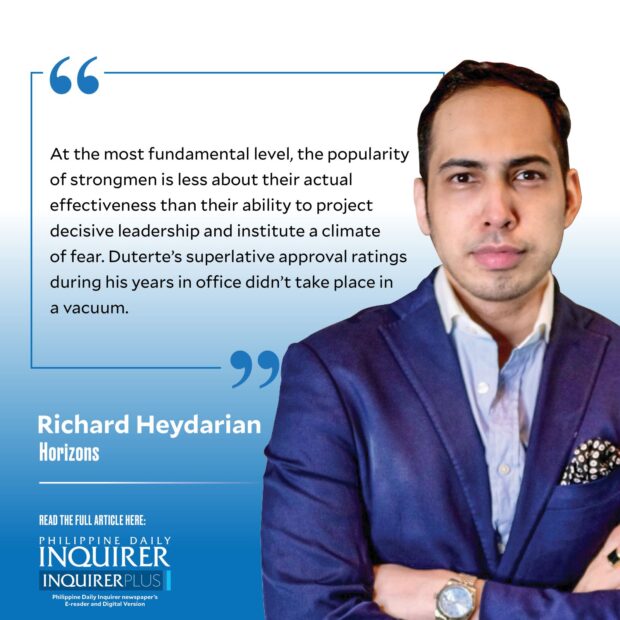Folly of strongman populism

Latin America now has a “millennial dictator.” Earlier this month, El Salvador’s Nayib Bukele secured a second term as president, thus cementing his position as the region’s latest caudillo. “Why are there so many eyes on a small (Latin) American country?” he confidently asked legions of supporters while standing on the balcony of the National Palace. “They’re afraid of the power of example.”
By “example,” he meant his scorched-earth strategy against criminal groups, who have bedeviled the impoverished Central American nation in recent years. In response, Bukele assumed emergency powers and suspended basic constitutional rights across the board. The upshot was mass arrests of suspected criminals coupled with public humiliation. An entrepreneur and public relations expert by profession, Bukele is a master of performative populism.
On the surface, it was a spectacularly effective policy, since, all of a sudden, El Salvador is now perceived as “the safest nation” in the whole region. But at what cost?
Article continues after this advertisementAuthoritative investigations show that thousands of innocent folks fell victim to Bukele’s mass incarceration strategy. In the absence of due process, law enforcers relied on a cynical quota-based system to meet their targets, even if it meant arbitrarily punishing countless innocent youths.
In the absence of institutional reforms, a relatively corrupt police force was handed a blank check to terrorize any suspected criminal in the name of public order. Sounds familiar? Worryingly, even after squashing gangsters, Bukele has shown little interest in relinquishing his special powers.
He purged and bullied the country’s highest court to secure reelection in clear defiance of the constitution. Then proceeded to instruct the country’s legislature to renew his special powers once he extended his term in office.
Article continues after this advertisementA self-described “world’s coolest dictator,” Bukele seems to have little patience for any criticism or opposition. But he has a legion of fans across the region and, to my surprise, even here in the Philippines. After all, isn’t he a younger, more dynamic, and, at least to a certain degree, effective version of our own Duterte? But Bukele is also perfect proof that even the “best version” of Duterte would have been a potential disaster.
At the most fundamental level, the popularity of strongmen is less about their actual effectiveness than their ability to project decisive leadership and institute a climate of fear. Duterte’s superlative approval ratings during his years in office didn’t take place in a vacuum.
As many as seven out of 10 Filipinos expressed fear that they would be a victim of extrajudicial killing in Duterte’s first three years in office, according to the Social Weather Stations (SWS) survey. As many as 90 percent of Filipinos (95 percent in Metro Manila) made it clear that they preferred drug suspects to be kept alive.
Interestingly, the climate of fear bled into the succeeding administration, with 47 percent of Filipinos admitting they found it too dangerous to express contrarian views against the government last year. But unlike in El Salvador, which is still in the dark grip of “penal populism,” the tide is shifting in the Philippines.
With President Marcos appearing less authoritarian than many feared, and the former president seeming more politically fragile than ever, the Filipino people are warming up to the prospect of justice for thousands of victims of Duterte’s mindless drug war.
According to the SWS, the number of Filipinos supporting an International Criminal Court (ICC) investigation into Duterte’s drug war increased from 45 percent in the first quarter of last year to as high as 53 percent by the end of the year. Meanwhile, almost six out of 10 (57 percent) Filipinos agreed that the Marcos administration should allow ICC investigations to take place. Only a minority of 10 percent of the respondents “strongly disapproved” of the ICC intervention.
Sensing the impending risk, the former president has engaged in his own “madman theory” tactics, threatening total chaos if the government cooperates with the ICC. Nevertheless, Mr. Marcos now faces a tantalizing prospect: He can do both the politically popular and morally right thing. By eventually cooperating with the ICC, he can simultaneously enhance his own family’s “rebranding,” repackage the Philippines as a vibrant democracy and give justice to victims. This could be his ultimate shot at redemption.
rheydarian@inquirer.com.ph
















